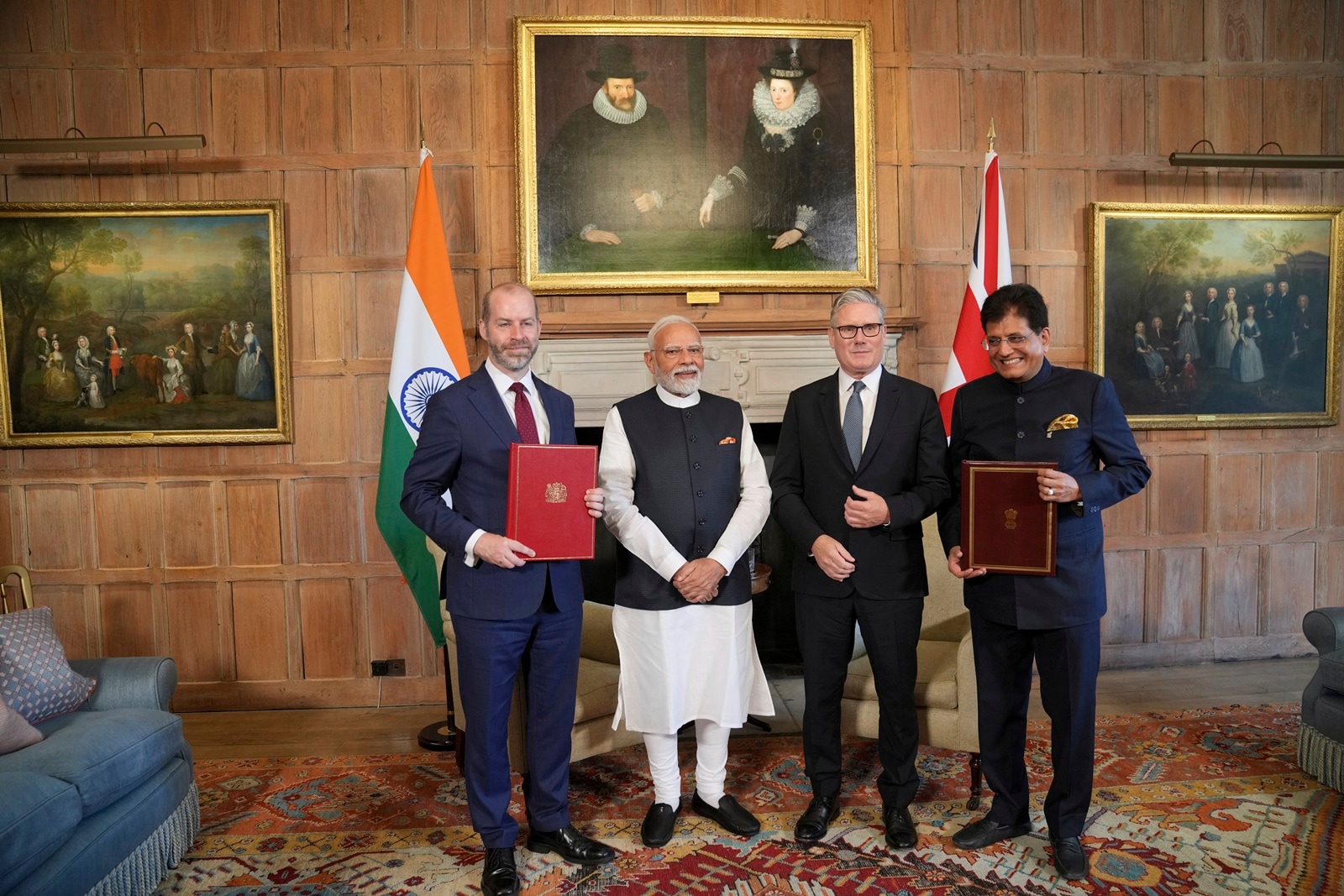The fine print of the India-Wk CompREENT Economic and Trade Agreement (Ceta) has a signal towards India’s growing anxiety over the chinese chokehold on the critical miners’ support chain, and how new delhi is aiming to Counter Beijing’s dominance in the sector.
This Follows A Similar Initiative by the Quad (Comprising India, Australia, Japan, and the United States) earllier this month, where they launched an initive to Secure suply chain of critical chains of critical minereles, as worr. China’s stranglehold over the resources, which are vital to new technologies.
The India-Uk Vision 2035, A Document Outlining The Broader Collaborative Goals of the Free Trade Between The two said that they will work together to developer to developer and research, built. Technology Security Initiative, Focused on Future Telecoms, Artificial Intelligence and Critical Minerals, Laying The Ground for Future Collaboration on semiconductors, Quantum, Bio-Technology and Advancing Materials.
To Further Cooperation in Critical Minerals, The Two Countries Will Also Establish A UK-India Critical Minerals Guild to “Transform Financing Standards and Innovation”, According to A Jint Statement.
“Together, The Two Sides Will Prioritise Processing (of Critical Minerals), R&D, Recycling, Managing Risk to Supply Chains, Market Development ETC. and Will Champion Circular Economy Prindoiples and Advance. Traceability, “It said.
As part of the Deal with the UK, the second phase of the UK-India Critical Minerals Supply Chain Observatory (SCO) Will receive £ 1.8 Million in New Funding To Set Up a Satellite Campus at India The Funding Will Also SUPPORT Developing The World’s Largest Digital Data Infrastructure on The Critical Minerals Value Chain, According To An Official Joint Statement.
The sco is housed with the industrial resilience The first phase, which involved sharing, monitoring, and analysing supply chain data on critical minerals like Lithium, Copper, Nickel, and Cobalt, was launched in collaboration with Iit Bombay in Octoger Last Yar.
Story Continues Below this ad
Countering chinese dominance
Critical minerals, which include Rare Earth elements (rees), are an important component of variable cutting-leading hardware, ranging from semiconductor and electric vehicles to jet figures.
Rare Earth Magnets, especially neodymium-bron-baron (ndfeb) magnets, are crucial for ev manfacturing, particularly in electric motors. They provide the strong magnetic fields needed for Effect and Powerful Electric Motors, Including Traction Motors That Drive EVS. These magnets also play a major lole in other ev as power steering systems, wiper motors, and braking systems. China has a near monopoly over the production of these rare earth magnets.
 UK Prime Minister Keir Starmer and Prime Minister Narendra Modi Pose for a photo after the free trade agreement was signed on thursday. (Photo: AP)
UK Prime Minister Keir Starmer and Prime Minister Narendra Modi Pose for a photo after the free trade agreement was signed on thursday. (Photo: AP)
Following US President Donal Trump’s Tariff on Other Countries in April, China Implemented Specifically Designed Bureaucratic Hurdles for Foreign Companies Looking to Source Critical Minrals FRITY.
While the availability of Rare Earth metals are not limited to china, it is in the effective processing of these critical elements where beijing has a substantial led, which was only enjoyed by the uss and japan.
Story Continues Below this ad
In Recent Years, Japan has been about to restart some of its minerals processing industry owing to government own policies, but country like the us and India are heavily dependent on Chinesis exports.
In response to the us Administration’s Reciprocal Tariff Heat, China Restricted Exports of Seven Rare Earth Metals Including Samarium, Gadolinium, Terbium, Dysprosium, Lutetime, Lutetime, and Yttrum. As Rare Earth Magnets. Earler, it had also banned exports to the us of gallium, Germanium, antimony, and other key high-tech materials with potential military applications.
India’s car industry faces the heat
India’s nascent but slowly growing ev industry has faced a direct impact of chinese restrictions on export of rare earth magnets. None of the applications made by indian carmakers to source the critical minerals have been accepted by beijing, with automakers staring at shortages and potential setbacks to PRODUCATION PLANS.
China Requires Companies to Secure An End-User Licence, Along with an endorsement from the local government Howver, the fact that china has not yet cleared any application from the Indian entities is a cause of concern.
Story Continues Below this ad
Worrying still is a fresh insistence from beijing that instead of sourcing magnets separately, Carmakers Buy Antire Electric Motor Assemblies from Chinese Companies, Or Simply Wait for The Chinese Aesties Toxue. Export Permits to Local Rare Earth Magnet Producers, As As Done, According To Reuters, For At Least Four Magnet Producers That Include Suppliers – The First Granted Since Beiating Restriced. Shipments earllier this year. The German carmaker is said to have lobbied hard with beijing to get this done.
